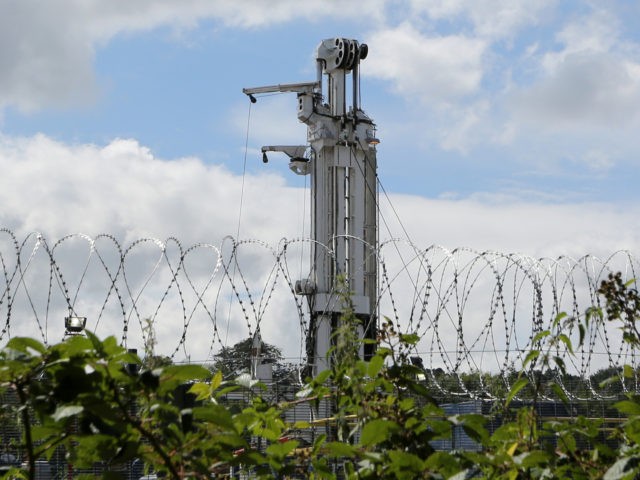The British government appears to be moving towards a U-turn on energy policy, opting to reverse an earlier total fracking ban by allowing two sites in Lancashire to remain open, instead of filling their wells with concrete as was previously planned.
The two gas wells were set to close imminently — with concrete to be poured in them to permanently seal them under the government’s increasingly unpopular net-zero plan — but the new closure date has been pushed back to June in an effort to allow the sites to operate for “research” purposes.
The decision follows a call from 34 conservative MPs and 5 peers to reverse the plan to concrete over the sites in favour of making Britain more energy independent, with the group pleading with British Prime Minister Boris Johnson to reconsider “reliance” on imported gas.
While the UK is much less exposed to Russian energy than many European countries, rising prices on the continent will seriously impact British consumers too, a nations scrabble for a finite supply o alternative energy sources. British fracking, the MPs say, would “would improve the position of the UK and its allies”.
The government has, however, maintained that their “position on fracking hasn’t changed”, The Sun reports.
“It would take years of exploration and development before any quantities of shale gas could be extracted and wouldn’t have an impact on prices affecting Europe in the near future”, a government spokesperson told The Sun, perhaps betraying the short-termism of thinking about a crisis that would quite possibly be impacting supply and prices in the medium term and beyond.
Shell Abandons Russian Oil and Gas: Shutters All Outlets in Country https://t.co/fQfnzzSDVu
— Breitbart London (@BreitbartLondon) March 8, 2022
Cuadrilla Resources — Britain’s sole fracking company who own the sites — dispute the government’s position on fracking and have previously reported that if they were allowed to frack they could halve Britain’s energy dependence on other nations.
“Britain is spending between £2 billion and £3 billion a month importing gas. We could have supplied half that and created thousands of jobs in the process”, Francis Egan the chief executive of Cuadrilla told The Times.
Fracking is viewed by those on the left and some establishment conservatives as “polluting, disruptive and dangerous to communities“, which has impeded the development of Britain’s fracking industry.
Egan has also suggested that the government fears a backlash from Britain’s radical environmentalist protest groups, who oppose fracking due to concerns about minor earthquake tremors, but has highlighted that they do not voice opposition to drilling for geothermal energy or railway tunnelling which produce similar tremors.
The u-turns against Britain’s strict green policies have been clearer in other areas though, with new licences to drill in the North Sea being explored this week when as recently as last year requests to find more energy were being denied by the government.
Britain’s former Defence Secretary, Michael Portillo, has also railed against the green lobby saying that he is “tired of being lectured by others” and that while Britain was “lectured” by the EU about being environmentally conscious the EU has been “making themselves 40 per cent dependent on Russian gas”.
Ukraine Energy Crisis: UK Households Face Worst Real Income Decline in Decades – Report https://t.co/I6DOZun5W4
— Breitbart London (@BreitbartLondon) March 9, 2022
The government’s temporary change of heart does however come as Britain’s Business and Energy Minister Kwasi Kwarteng announced on Tuesday that the UK will phase out “the import of Russian oil products by the end of 2022”, in the latest sanctions against Russia.
The ramifications of Russia’s invasion of Ukraine have already been felt in the UK as petrol prices soar – increasing by a reported 30% across the country – and households are facing an estimated £2,500 cut in living standards as a result of the ongoing Ukrainian conflict.
With this context in mind, Lord David Frost has highlighted the government has an ultimatum, either they “keep the gas coming [from Russia] and pay for it” or they can “lift the ban” on fracking and make Britain more energy independent.

COMMENTS
Please let us know if you're having issues with commenting.